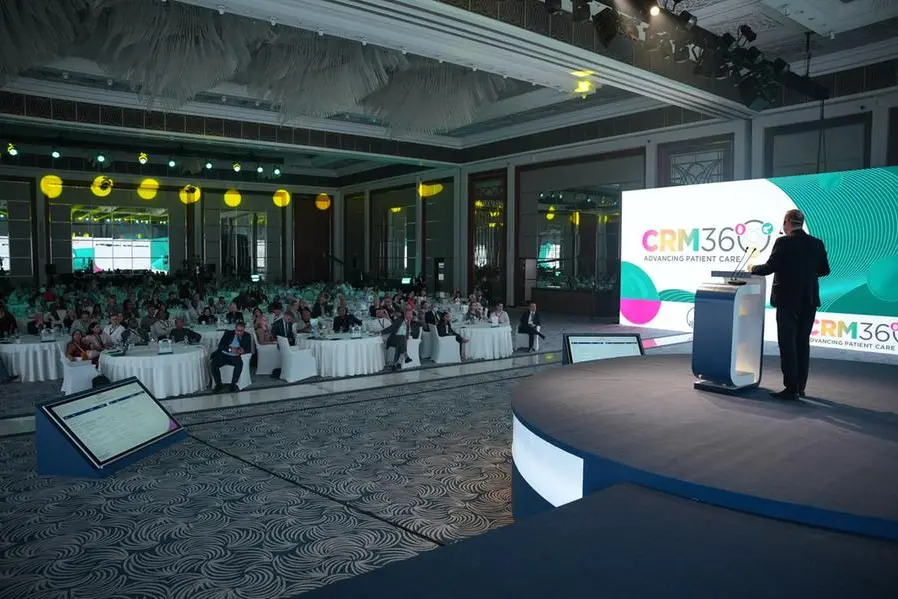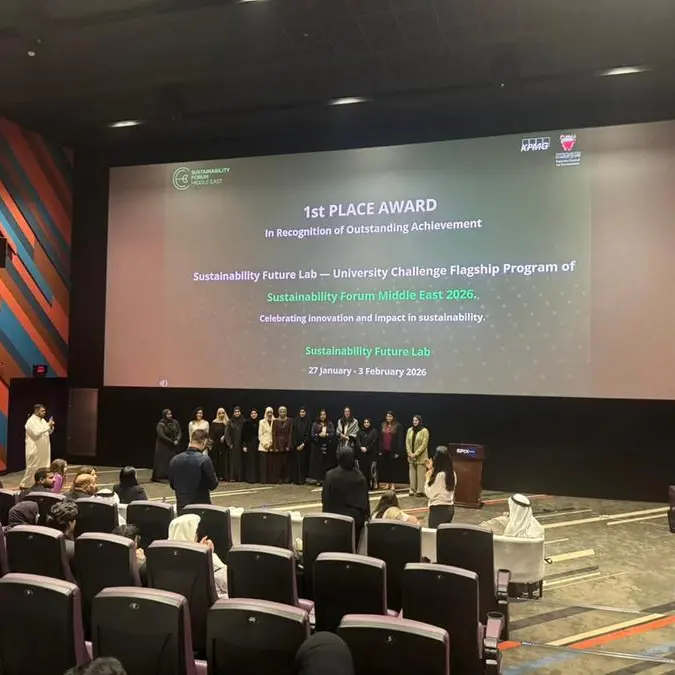PHOTO
- Over 300 nephrologists, endocrinologists, internists, diabetologists and cardiologists from India, the Middle East, and Africa attended the two-day meeting to tackle type 2 diabetes (T2D) and the interconnected cardiovascular, renal, and metabolic (CRM) systems.
- CRM conditions are the leading cause of death worldwide, accounting for up to 20 million deaths annually1
- The ‘CRM 360 Meeting’ is accredited by the American Association of Continuing Medical Education, the British Academy of Continuing Medical Education and notable local accrediting bodies
Dubai, United Arab Emirates: Over 300 healthcare professionals from India, the Middle East, and Africa joined international experts to share knowledge and best practice about the importance of taking a multidisciplinary approach to manage type 2 diabetes (T2D) at the ‘CRM 360 Meeting’ that was hosted by Boehringer Ingelheim, one of the world’s leading pharmaceutical companies, and took place in Dubai on October 21st and 22nd.
Cardiovascular, renal, and metabolic (‘CRM’) conditions affect more than one billion people worldwide and account for up to 20 million deaths annually, becoming the leading cause of death globally1. In the Middle East and North Africa, the prevalence of diabetes is at 55 million adults and is set to double by 20452. The pancreas, the heart, and the kidneys have an important connection as they have the potential to both positively and negatively impact each other3. This interconnectivity means that when a person experiences disease in one of these areas, it increases the chances of one or all the other systems being affected4,5. Therefore, a collaborative multidisciplinary approach can increase the chances of improving treatment outcomes. A diverse team of experts can coordinate the treatment of related conditions to help in reducing the effect of the disease on the cardiovascular, renal and metabolic systems of patients living with T2D.
With participants from across the region, the CRM 360 Meeting provided a forum for medical experts to discuss various treatment pathways and approaches to T2D care in different countries. Key topics included the latest guidelines on treatment adherence, focusing on the burden of chronic kidney disease and cardiovascular disorder associated with type 2 diabetes.
Mohammed Al-Tawil, Regional Managing Director, and Head of Human Pharma, India, Middle East, Turkey, and Africa (‘IMETA’) at Boehringer Ingelheim said, "At Boehringer Ingelheim, our goal is to improve the lives of patients living with chronic illnesses such as type 2 diabetes. Type 2 diabetes is a progressive disease that impacts hundreds of millions of people worldwide. Creating treatment solutions that offer multi-organ protection to the patients starts with a commitment to understand the needs of the patients, and we can achieve this by working closely with the medical community. Our annual CRM 360 Meeting allows us to connect with the region's leading healthcare professionals and international experts and learn about the latest guidelines that can improve treatment outcomes. By working together, we can accelerate the development of the next generation of breakthroughs to improve the health and wellbeing of our patients."
The CRM 360 Meeting was presented by international speakers from Finland and the United Kingdom. The meeting was moderated by leading specialists, including Prof. Adel El Etriby, Professor of Cardiology at Ain Shams University in Egypt; Dr. Khalid Almatham from Saudi Arabia; and Dr. Jalal Nafach, American Board-Certified Endocrinologist, University of Nebraska Medical Center in Nebraska in the USA.
Prof. Adel El Etriby, Professor of Cardiology at Ain Shams University, Egypt, said, “We know that there is a strong connection between type 2 diabetes and heart health – half of the patients with type 2 diabetes have a high cardiovascular risk, while the majority are at a high risk of fatal heart attack or stroke6. It is important for cardiologists to attend summits like the CRM 360 Meeting to interact with peers from different disciplines to learn from one another and explore how to work together to elevate the standard of care for patients.”
Dr. Jalal Nafach, American Board-Certified Endocrinologist, University of Nebraska Medical Center in Nebraska, USA and Consultant Endocrinologist in Dubai Diabetes Center, Dubai Health Authority, UAE, agreed that the interaction between specialists was key to improving patient care. “It’s incredibly valuable for healthcare professionals from different disciplines to share case studies and personal insight – it provides us with a ‘real-world’ view of the link between diabetes and other comorbidities. For instance, the connection between type two diabetes and the kidneys can be overlooked and is often unrealized by patients. Discussing the latest guideline updates at the CRM 360 –Meeting and considering a more holistic multisystem approach to care will benefit our patients.”
Dr. Khalid Almatham, Consultant Nephrologist, Clinical Asst. Professor, and Associate Executive Director of Academic Studies and Training Affairs in Saudi Arabia, added, “We learn more and more how everything is interconnected; for instance, when you treat someone for type 2 diabetes, renal-protection must also be considered. We now have evidence that the use of type 2 diabetes medications can reduce the risk of kidney complications. Having the opportunity to discuss this type of evidence and what it means for our patient care is a real strength of meetings like this.”
In addition to the ‘CRM 360 Meeting’, Boehringer Ingelheim also hosts interactive webinars and sessions for the medical community throughout the year to share best practices, insights, and learnings on T2D management with the goal of enhancing patient outcomes.
-Ends-
About Boehringer Ingelheim
Boehringer Ingelheim is working on breakthrough therapies that improve the lives of humans and animals. As a leading research-driven biopharmaceutical company, the company creates value through innovation in areas of high unmet medical need. Founded in 1885 and family-owned ever since, Boehringer Ingelheim takes a long-term perspective. Around 52,000 employees serve more than 130 markets in the three business areas, Human Pharma, Animal Health, and Biopharmaceutical Contract Manufacturing. Learn more at www.boehringer-ingelheim.com.
About type 2 diabetes
Type 2 diabetes is a common life-long condition causing the blood sugar (glucose levels) to rise, which results in tiredness and excessive thirst among other symptoms, along with the potential risk of negatively affecting the eyes, kidneys, and heart7.
About cardio-renal-metabolic conditions
The cardiovascular, renal, and metabolic systems are interconnected, and share many of the same risk factors and pathological pathways along the disease continuum. Dysfunction in one may contribute to dysfunction of the others, resulting in progression of interconnected diseases such as type 2 diabetes, cardiovascular disease, heart failure, and kidney disease, which in turn leads to an increased risk of cardiovascular death. Conversely, improvements in one system can lead to positive effects throughout the others8–10.
Through our research and treatments, our goal is to support people’s health, restoring the balance between the interconnected cardio-renal-metabolic systems and reducing their risk of serious complications. As part of our commitment to those whose health is jeopardized by cardio-renal-metabolic conditions, we will continue embracing a multidisciplinary approach towards care and focusing our resources on filling treatment gaps.
For more information, please contact:
Sayali Kavalekar
Manager, Human Pharma Communications, Corporate Affairs
India, Middle East, Turkey and Africa
Boehringer Ingelheim
Email: sayali.kavalekar@boehringer-ingelheim.com
References:
- GBD 2015 Mortality and Causes of Death Collaborators. Global, regional, and national life expectancy, all-cause mortality, and cause-specific mortality for 249 causes of death, 1980–2015: A systematic analysis for the Global Burden of Disease Study 2015. The Lancet. 2016;388(10053):1459–544.
- Members, R., Africa, M. and MENA, D., 2021. Diabetes in MENA. [online] Idf.org. Available at: https://www.idf.org/our-network/regions-members/middle-east-and-north-africa/diabetes-in-mena [Accessed 27 September 2022].
- Sarafidis P, Ferro CJ, Morales E., et al. SGLT-2 inhibitors and GLP-1 receptor agonists for nephroprotection and cardioprotection in patients with diabetes mellitus and chronic kidney disease. A consensus statement by the EURECA-m and the DIABESITY working groups of the ERA-EDTA. Nephrol Dial Transplant. 2019;1;34(2):208–230.
- Thomas G, Sehgal AR, Kashyap SR., et al. Metabolic syndrome and kidney disease: a systematic review and meta-analysis. Clin J Am Soc Nephrol. 2011;6(10):2364–73.
- García-Donaire JA, Ruilope LM. Cardiovascular and Renal Links along the Cardiorenal Continuum. Int J Nephrol. 2011;975782.
- Cebrián-Cuenca AM, Mata-Cases M, Franch-Nadal J,et al. Half of patients with type 2 diabetes mellitus are at very high cardiovascular risk according to the ESC/EASD: data from a large Mediterranean population. Eur J Prev Cardiol. 2021;28(18):e32–e34.
- nhs.uk. 2021. Type 2 diabetes. [online] Available at: < https://www.nhs.uk/conditions/type-2-diabetes/ /> [Accessed 3 June 2021].
- García-Donaire JA, Ruilope LM. Cardiovascular and Renal Links along the Cardiorenal Continuum. Int J Nephrol. 2011;2011:975782.
- Leon BM, Maddox TM. Diabetes and cardiovascular disease: Epidemiology, biological mechanisms, treatment recommendations and future research. World J Diabetes. 2015;6(13):1246–58.
- Thomas M, Cooper M, Zimmet P. Changing epidemiology of type 2 diabetes mellitus and associated chronic kidney disease. Nat Rev Nephrol. 2015;12:73–81.




















